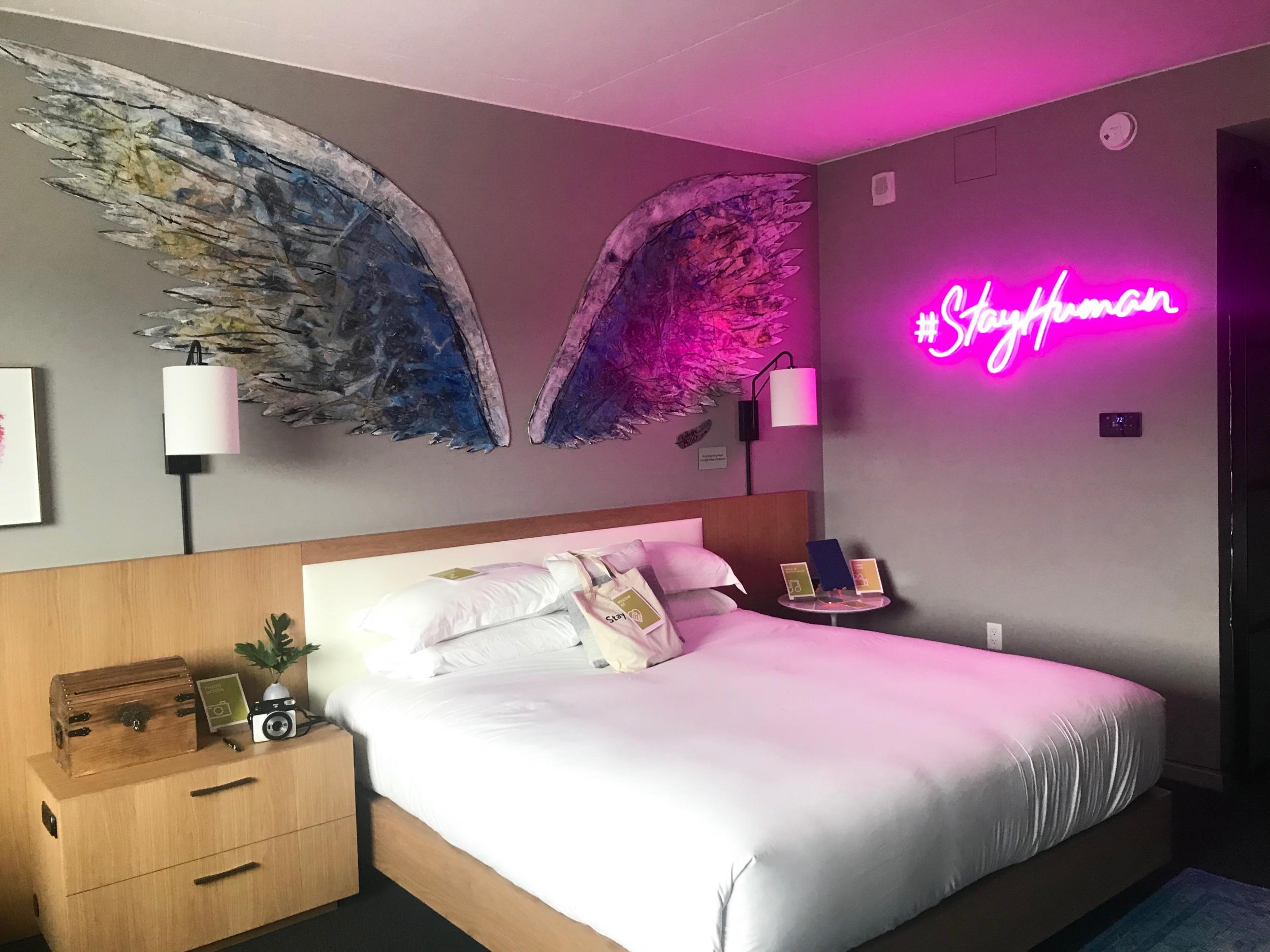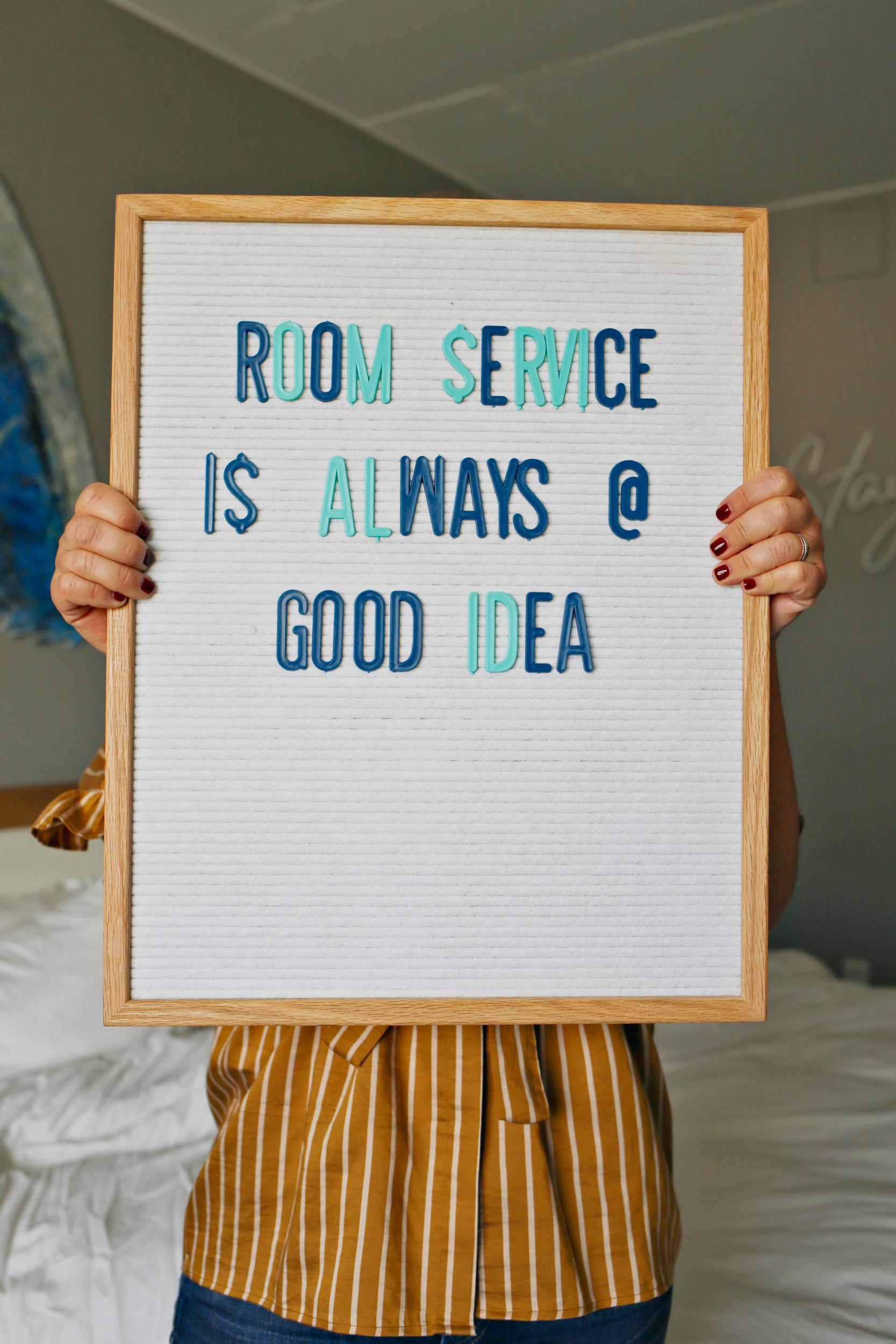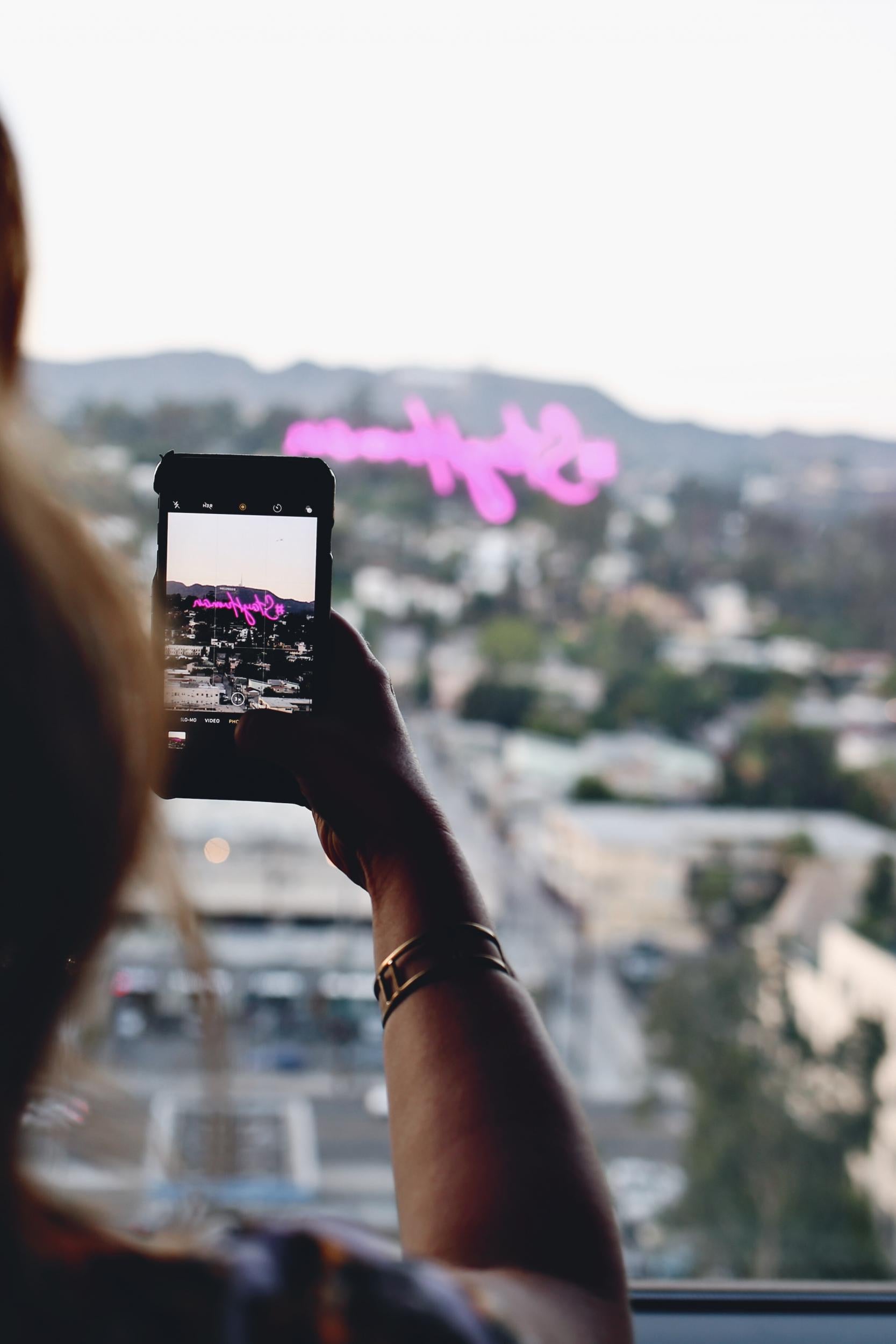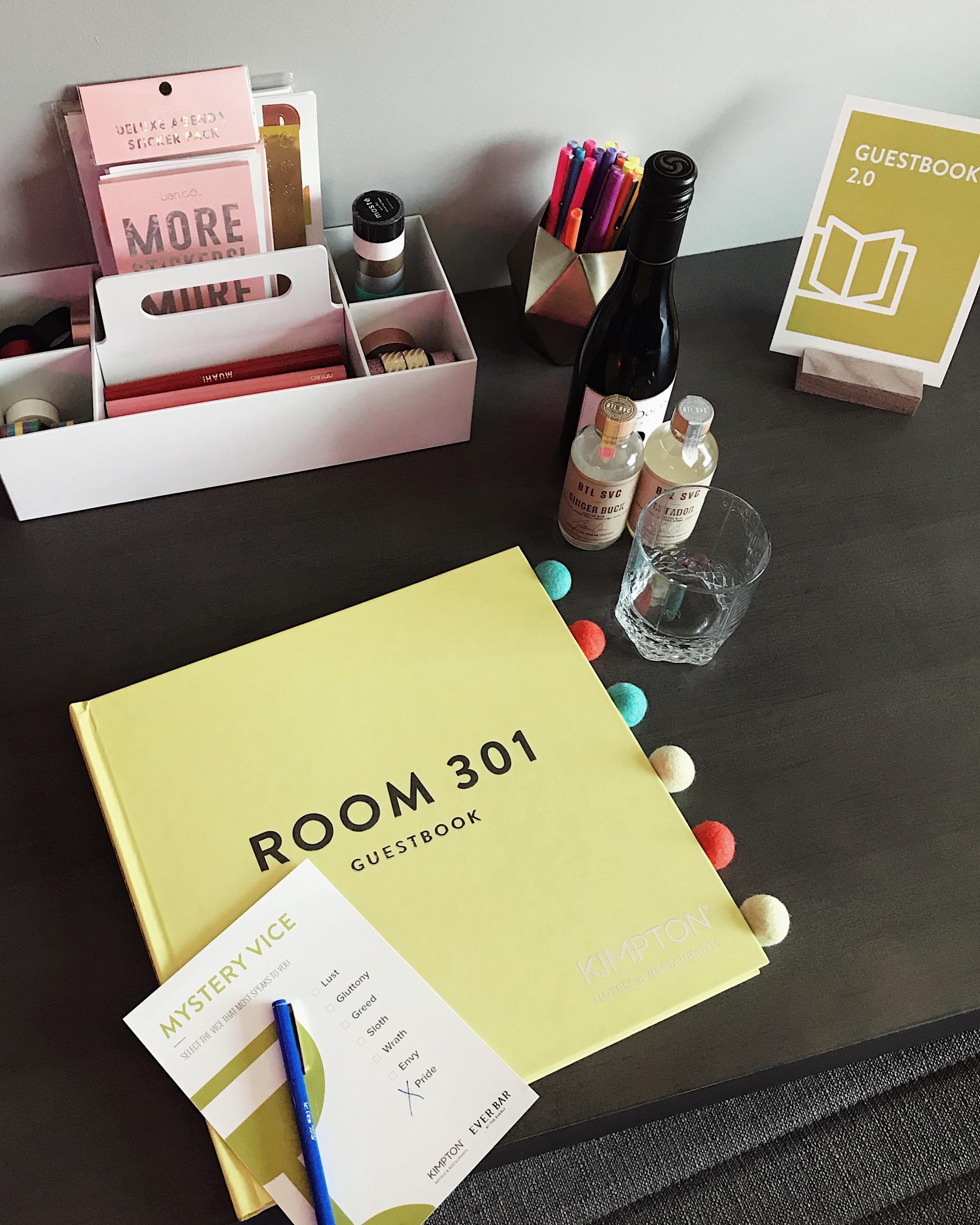Welcome to the world's first 'social experiment' hotel room
Room 301 is taking place in Kimpton Everly Hotel in Los Angeles until the end of November

Your support helps us to tell the story
From reproductive rights to climate change to Big Tech, The Independent is on the ground when the story is developing. Whether it's investigating the financials of Elon Musk's pro-Trump PAC or producing our latest documentary, 'The A Word', which shines a light on the American women fighting for reproductive rights, we know how important it is to parse out the facts from the messaging.
At such a critical moment in US history, we need reporters on the ground. Your donation allows us to keep sending journalists to speak to both sides of the story.
The Independent is trusted by Americans across the entire political spectrum. And unlike many other quality news outlets, we choose not to lock Americans out of our reporting and analysis with paywalls. We believe quality journalism should be available to everyone, paid for by those who can afford it.
Your support makes all the difference.There’s a guestbook asking probing questions such as “what’s your greatest fear?” and “what’s your greatest achievement?”. There’s an iPad on the bedside table loaded with a curated Spotify playlist. The whiteboard in the room has some weird confessions on it, including: “I have a boyfriend” (by Luca, age six) and “sometimes I don’t like my kids. But only sometimes”.
This oversharing is the backbone of Room 301, a three-month “social experiment” taking place at the Kimpton Everly in Hollywood, Los Angeles, a hotel brand long known for its focus on local experiences.
Room 301 is designed to connect guests to the stories of the guests that have stayed in the room before them, which is basically the polar opposite of what hotels do: make reference to the fact that other people have stayed in the room, and the same bed. The hotel’s own rationale reads: “Room 301 reflects Kimpton’s belief that heartfelt human connections make peoples’ lives better and the idea that commonalities and connections exist between all people – no matter their background or life story. Room 301 seeks to uncover the intersections and variances of the human experience.”

There is context. For many years, hotels have been no more than bed factories, providing somewhere clean, safe and warm for travellers overnight. As guests demand more authentic experiences, hotels have morphed into lifestyle brands in their own right – just last week the W hotel chain, owned by hospitality behemoth Marriott, launched its own record label – with things like fashion lines, art galleries and experience “curators”.
That human experience is borne out in a number of interactive elements inside the room. I went inside to check it out.

There’s the confession board (where one of the first guests drew a lewd drawing – naturally. It was removed), a pinboard on which to write an affirmation for the next guest, a Spotify playlist loaded with each guest’s personal track, plus the chance to record a video testimonial, which will only be seen by the hotel. The questions that every guest has to answer include “what is your favourite thing about yourself and why?” and “when was the last time you cried or laughed intensely?”. It feels surprisingly personal, but I suppose staying in a hotel room such as this is.
There are aesthetic elements, too. A pink neon “stay human” – Kimpton’s logo – beams from the wall, while LA artist Colette Miller’s blue-grey angel wings stand guard above the bed. There’s a cracking view of the Hollywood sign from the window, too. Guests can also enjoy a “mystery vice” cocktail downstairs at the bar, based on one of the seven deadly sins.
Perhaps the biggest social experiment of them all is the room’s “pay it forward” activity. Each guest will be given a certificate for 10,000 IHG Rewards Club Points, which they can then choose to keep, or pay forward to the next guest. That’s the one part of this activation that I’m genuinely interested to know the outcome of. I’m not sure I’d choose to gift a stranger thousands of reward points, however karmic it might feel.

The information about each Room 301 guest – from their cocktail choice to the video diary – is recorded by the hotel, and will be shared when the “experiment” comes to a conclusion on 30 November. There are big business benefits for the hotel: the data collected by each guest offers the brand an opportunity to really get under the skin of their clientele.
“With Room 301 we’ll get to know the individuals who stay in the room – their experiences, aspirations and values. We hope to have some interesting insights that can inspire the way we continue to build community at our hotels and restaurants,” said Kathleen Reidenbach, chief commercial officer at Kimpton.
Then next spring the hotel will invite all past guests to meet each other and swap stories of their night in the room.
My take? It sounds utterly mortifying, and I’d rather not think about the guest that had stayed in the bed before me, or showered in the bathroom before me. That said, it’s a super interesting concept, and I’ve never come across such a personal hotel room before. The concept has proved popular with guests around the world, according to the pin map by the door, which shows where guests are from. (Most are American, and only a couple were from Europe.)
If you fancy getting involved with the experiment and staying a night in Room 301, you can book until 30 November. But spoiler: Room 301 isn’t actually room 301. It’s on the 12th floor...
Essentials
Room 301 guests receive a 10 per cent off the best flexible rate at Kimpton Everly (which works out at around $250 a night), plus a $10 donation to a local charity project. everlyhotelhollywood.com
Join our commenting forum
Join thought-provoking conversations, follow other Independent readers and see their replies
Comments